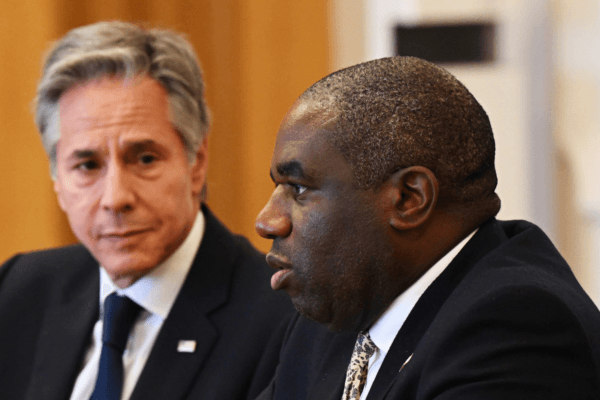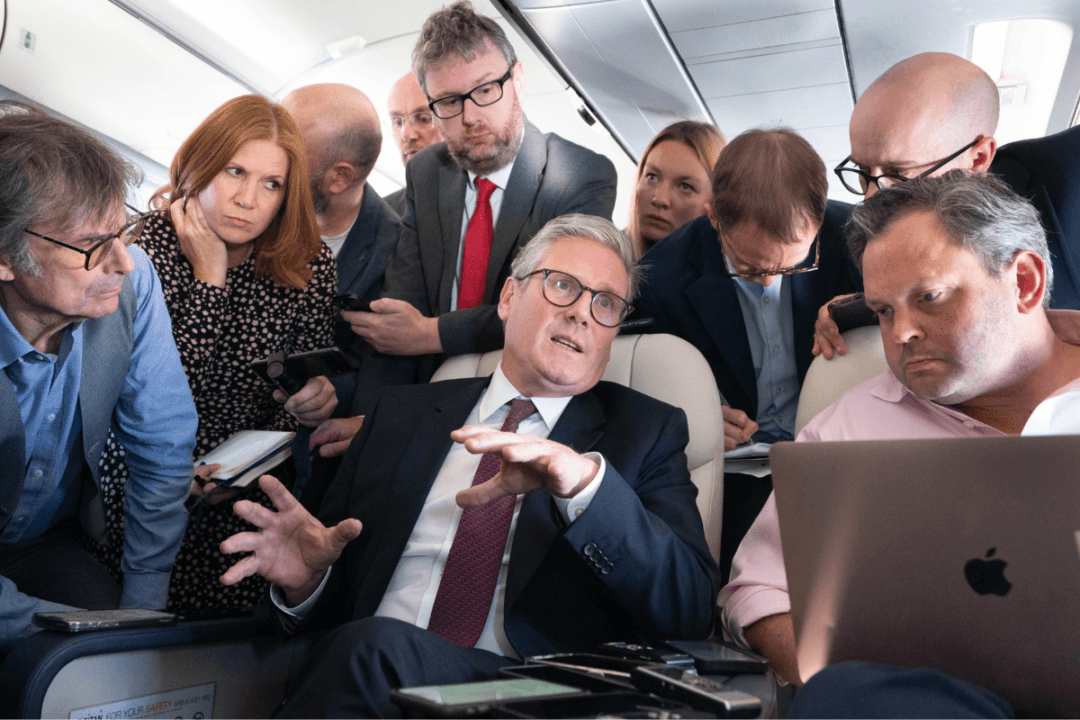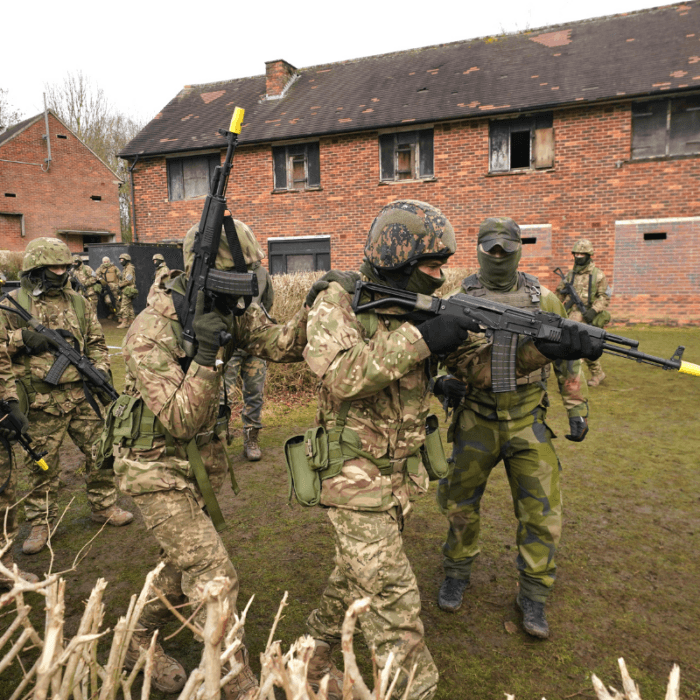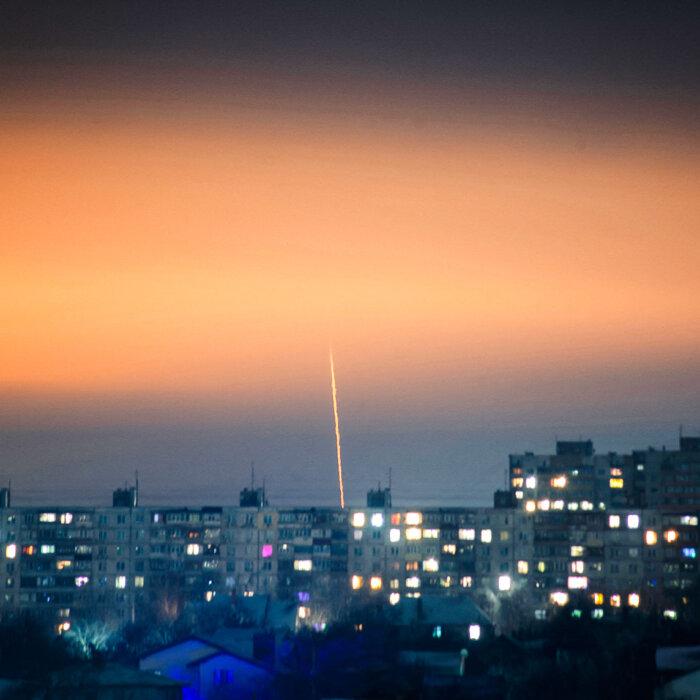The UK does not seek conflict with Russia, the prime minister has said as he reaffirmed support for Ukraine’s right to defend itself.
Sir Keir Starmer made the remarks in response to Russian President Vladimir Putin saying that allowing Kyiv to perform long-range strikes with Western-made missiles would bring NATO “at war” with Russia.
“But we don’t seek any conflict with Russia—that’s not our intention in the slightest. But they started this conflict and Ukraine’s got a right to self-defence.”
The prime minister and Biden are expected to discuss Ukraine’s plea to lift restrictions on using long-range Western weaponry, such as the Storm Shadow cruise missiles, against Russian targets—a request that has so far not been granted over concerns it could escalate tensions between NATO and Russia.
Pressed on whether the use of Western missiles would constitute a NATO war with Russia, Starmer reiterated his position that the conflict was caused by Russia and Ukraine has a right to self defence.
‘War’ With Russia
Foreign Secretary David Lammy and U.S. Secretary of State Antony Blinken made their first bilateral trip to Kyiv this week to hear from President Volodymyr Zelenskyy on what more the United States and UK can do to support Ukraine.Zelenskyy has repeatedly pushed for permission to use Western missiles and said during a conference attended by Blinken and Lammy that he anticipated discussing the issue with the two secretaries of state and that he hoped “strong decisions” would be made.
“If I am optimistic about their decision to give us permission to use long distance, it is a pity it doesn’t depend on my optimism. It depends on their optimism,” said Zelenskyy.
Lammy and Blinken said they had listened carefully to the request and would report back to their countries’ respective heads of government.
The pair announced further financial support from Ukraine, including £600 million from the UK for humanitarian, energy, and stabilisation needs.
On Thursday, Putin said that allowing long-range strikes with Western weapons “would mean that NATO countries, the United States, and European countries are at war with Russia … if this is so, then, bearing in mind the change in the very essence of this conflict, we will make appropriate decisions based on the threats that will be created for us.”
Sanctions on Iran
Speaking from Kyiv, Blinken said, “We’ve seen Russia now pursue and indeed escalate its attacks inside Ukraine, on civilians, on energy infrastructure, as well as on the Ukrainian military that’s defending its country.”“And we’ve now seen this action of Russia acquiring ballistic missiles from Iran, which will further empower their aggression in Ukraine. So if anyone is taking escalatory action, it would appear to be Mr Putin and Russia,” he added.

Leon Neal/PA Wire
Lammy called the matter “a troubling pattern that we’re seeing—it is definitely a significant escalation.”
The UK will also be sanctioning five cargo ships for their role in transporting military supplies from Iran to Russia, as well as sanctioning several individuals and organisations in Iran and Russia, subjecting them to asset freezes and travel bans.
Director of the CIA William Burns, who was in London on Saturday for a joint appearance with his British MI6 counterpart, Sir Richard Moore, warned of the “troubling” defence partnership developing between China, Russia, Iran, and North Korea which Burns said threatens both Ukraine and Western allies in the Middle East.







